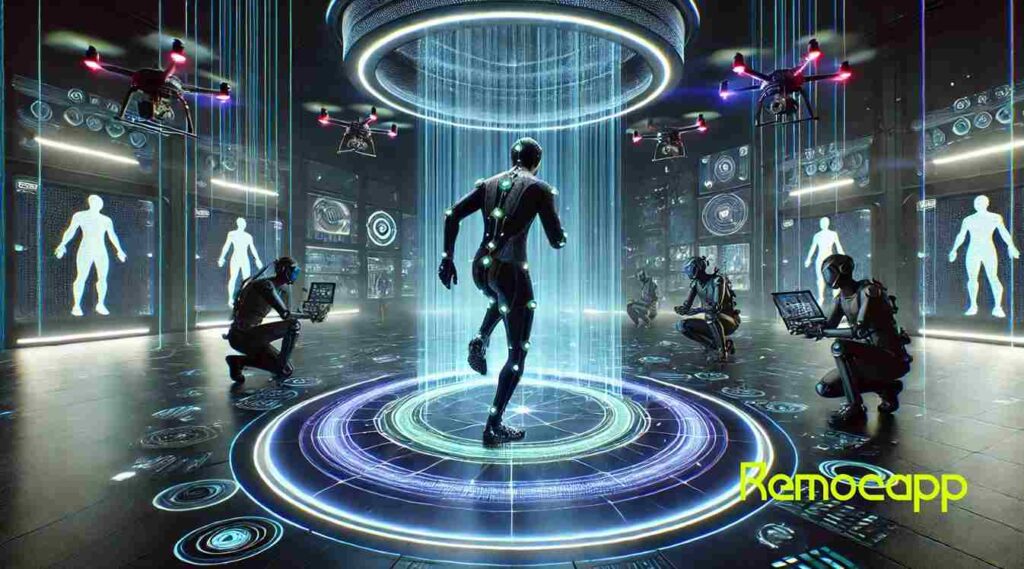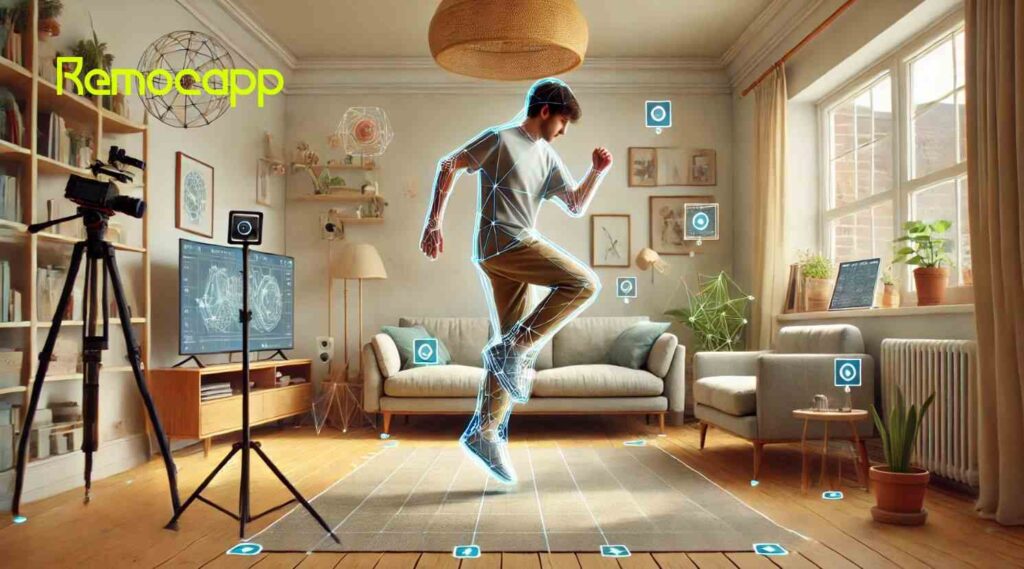Suits vs. Suitless Motion Capture: Which Technology Leads the Way?
Writer
Sophia CarterDate
07 Jan 2025
Share article

Imagine bringing digital characters to life without the hassle of bulky suits or intricate marker setups. In the world of animation, gaming, and virtual reality, the debate between suits vs. suitless motion capture is heating up, and creators everywhere are exploring which technology best suits their needs. Motion capture technology is essential for bringing digital characters to life, and creators are now faced with choosing between traditional mocap suits and emerging suitless alternatives. But which option offers the best accuracy, affordability, and ease of use? Let’s break down the pros and cons to help you decide.
What Are They?
Motion Capture Suit: A motion capture suit is a wearable outfit fitted with markers or sensors that track body movements. These suits work in conjunction with infrared cameras or magnet-based systems to record and translate physical actions into digital data.
Suitless Motion Capture: Suitless mocap eliminates the need for suits or markers. Instead, it uses AI-driven software and standard cameras (like webcams or smartphones) to track and capture movements in real-time. Software like Remocapp is a prime example of this cutting-edge approach.
Pros and Cons of Suits vs. Suitless Motion Capture
Motion Capture Suit
Pros:
- Highly Accurate – Marker-based systems are known for their precision, often making them the go-to for large-scale studio productions.
- Industry Standard – This technology has been used for years, with proven results in blockbuster films and AAA games.
- Detailed Finger and Face Capture – Advanced suits can track intricate movements, capturing facial expressions and fine motor actions.
Cons:
- Expensive – Mocap suits can cost thousands of dollars, often making them inaccessible to indie developers or small studios.
- Time-Consuming Setup – Suit calibration and sensor placement require dedicated time and expertise.
- Limited Mobility – The wearer must remain within a designated capture area.

Suitless Motion Capture
Pros:
- Affordable and Accessible – All you need is a couple of webcams or smartphones. Remocapp removes the need for expensive suits and additional equipment.
- Quick Setup – No suit to put on, no markers to adjust – simply position your cameras and start recording.
- Portability – Perform motion capture anywhere without being tied to a specific space or environment.
- Real-Time Tracking – AI algorithms process movements instantly, streamlining workflow.
Cons:
- Slightly Less Precise for Intricate Details – While suitless mocap captures full-body movements effectively, it may not yet match the hyper-precision of high-end mocap suits for tiny details.

The Case for Suitless Mocap: Unlocking Efficiency and Creativity with Remocapp
The creative industries are shifting toward more flexible and cost-effective solutions, and the battle of suits vs. suitless motion capture is at the forefront of this evolution. With software like Remocapp, users can achieve high-quality motion capture results without breaking the bank or spending hours in setup. For instance, an indie game developer recently shared how Remocapp allowed them to complete an entire project from their home studio, saving both time and thousands of dollars compared to traditional mocap suit setups. This opens the door for indie game developers, filmmakers, and virtual reality creators to bring their visions to life with fewer barriers.
Remocapp’s markerless technology is powered by sophisticated AI, ensuring smooth, realistic animations – all while using standard devices that most studios and creators already have at their disposal.
| Feature | Motion Capture Suit | Suitless Motion Capture |
| Accuracy | Highly precise, great for intricate movements | Very accurate, but may lack micro-detail |
| Cost | Expensive (thousands of dollars) | Affordable (uses existing cameras/devices) |
| Setup Time | Time-consuming and complex | Quick and easy |
| Mobility | Limited to designated capture area | Portable, can be used anywhere |
| Equipment Required | Mocap suit, sensors, infrared cameras | Webcams or smartphones |
| Use Case | Large studio productions | Indie creators, small studios, VR projects |
| Facial and Finger Tracking | Advanced with detailed tracking | Less precise for micro-expressions |
| Flexibility | Restricted to specific environments | Flexible, records in any setting |
Conclusion
When comparing suits vs. suitless motion capture, it’s clear that while mocap suits still hold a place in large, high-budget productions, suitless solutions are becoming the preferred choice for those seeking efficiency, affordability, and portability. With Remocapp’s innovative suitless motion capture technology, creators can enjoy high-quality motion capture without the need for expensive and cumbersome suits. Features like real-time tracking, easy setup, and cloud integration make Remocapp the perfect choice for creators looking to push the boundaries of their projects without the constraints of traditional mocap suits.
If you’re ready to step into the future of motion capture, Remocapp’s suitless solution is the key to unlocking new creative possibilities. Why not try motion capture without the suit and see how freeing it can be? Download Remocapp now and experience the power of suitless motion capture – sometimes, less really does feel like more.
FAQ
Suits involve wearing specialized outfits with markers or sensors to track movement, while suitless mocap uses AI and cameras to capture movement without wearable technology.
Suitless mocap is highly effective for full-body movement but may lack the fine precision of high-end mocap suits, particularly for detailed finger or facial tracking.
Yes, suitless mocap eliminates the need for expensive suits and sensors, making it a cost-effective option for indie creators and small studios.
Suitless mocap offers freedom, portability, and affordability. It reduces barriers to entry and allows creators to work in any environment with minimal equipment.
Absolutely. Many professional filmmakers, game developers, and VR creators are turning to suitless systems for their flexibility and affordability.




 Remocapp Support
Remocapp Support